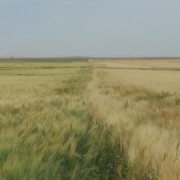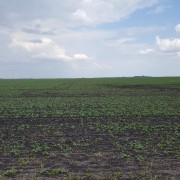How Good is Your Information?
I’ve been staunchly encouraging (ok, pushing) my clients to up the ante on how they manage their
business information. As we look at 2015, it is clear that opportunities for profit will be harder to find
than in years past and we must use every tool at our disposal to make the best decisions possible.
Enter data management.
Why do you think retail spaces are designed the way they are? It comes from the retailer devoting
incredible resources to study the habits and behaviors of its shoppers. They take that information and
then design spaces in such a way that plays to the habits and behaviors of their shoppers so as to put
the desired products in front of their shoppers at the desired time and place during the shopping
experience. For example, they have learned that typically shoppers turn right versus left as soon as they
enter a store, and thus plan their store layout in a way that panders to a shopper’s subconscious
behavior AND the retailer’s intention to sell high margin items. Maybe it’s that shoppers turn left and
not right, but you get the point, so who cares? Business cares, that’s who.
Like that retail giant, you have the ability to make important business decisions based on specific
management data. You would use your historical agronomic data to decide which crop offers the best
profitability on each specific field (relative to rotation.) You review historical financial statements to
measure actual results versus projected results. You analyze soil test reports to determine how much
residual nutrient remains in your soil before making fertilizer purchases. This could go on and on.
I spend a lot of time working on True Cost of Production calculations and building Profit Curves for my
clients. I can only do a precise job with complete and accurate information. And when you’re using that
work to make important business decisions, it is imperative that you provide usable and accurate info.
The retailer will often hire out the collecting and compiling of data as well as the analysis and the
creation of a final report with recommendations. The final report can only be as good as the quality of
the data collected. The retailer could invest millions of dollars based on the information in that final
report.
Your business is no different: you collect and compile your own data; if you need the help, there are
qualified advisors available to help you decipher it and provide recommendations; you are then more
confident in future business decisions because you make the most informed choice available.
I am often asked for suggestions as to which data management platform to use. I liken it to exercise: you
can run, bike, jog, swim, whatever…as long as you’re exercising. Same with your farm data, there are
many platforms available; find the one that feels best for you…as long as you’re using it.
Direct Questions
Does your data management practice include data as precise as pounds of nutrient per acre by crop?
Are you retaining records of historical information to establish trend lines?
Are you recording your data at all, even if it is just a pencil and a ledger?
From the Home Quarter
There’s a lot of noise out there about “big data” and ownership/use of that data, and for good reason.
I’m not condoning the perceived risks relating to big data’s custody and/or use of your info, but in reality
we’ve been letting Google do it to us for a very long time already. Does that make it acceptable? No, of
course not. But do we let that be the excuse to not collect and manage our data? The actual harm done
to our business from not collecting data is greater than the risk of harm from potential illicit use of our
data. The cost of doing nothing in this case is far greater than the risk of doing the wrong thing.
I don’t care if you use a “big data” cloud based platform, or a spreadsheet on your Windows 95
computer. You owe it to yourself and to your business to make the most informed decisions possible.
The best decisions are made with good information. How good is your information?
If you’d like help planning your farm for business and personal success, then call me or send an email.












Leave a Reply
Want to join the discussion?Feel free to contribute!